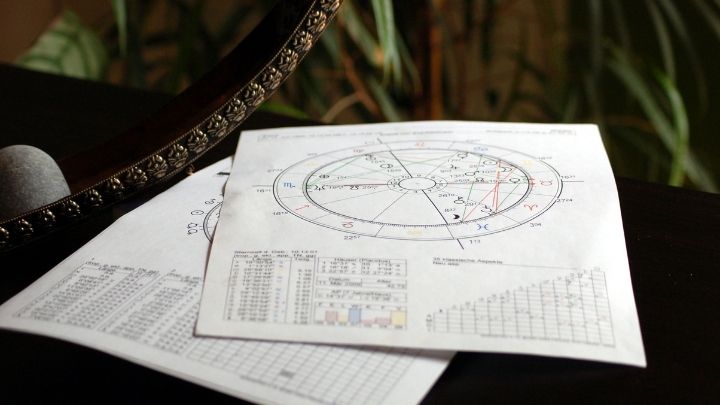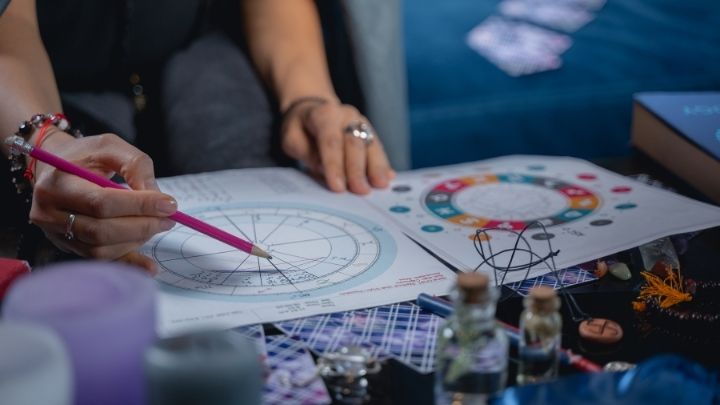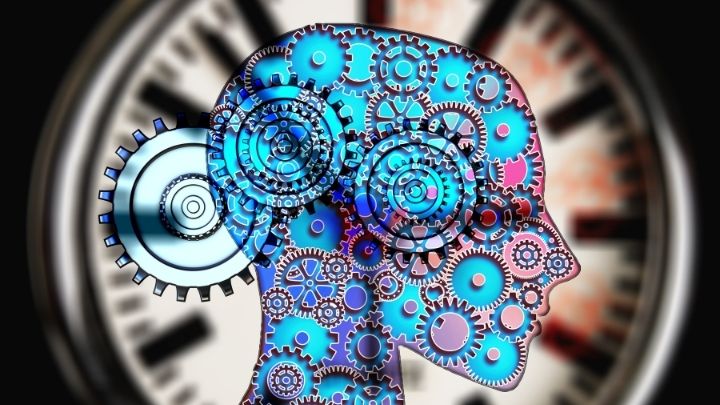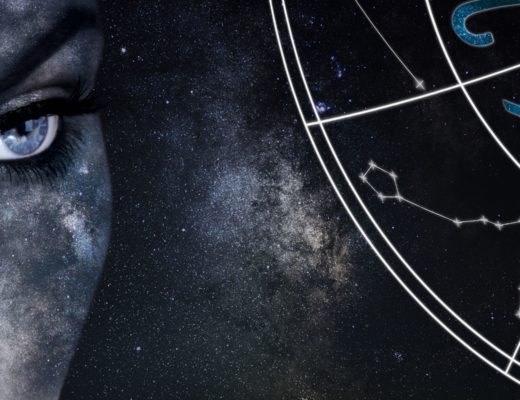The mystical world of astrology has been making a bold resurrection in recent years, though some may argue it ever died in the first place.
With horoscopes, moon events, and transits becoming increasingly popular amongst millennials and Gen Z, contemporary astrology has been around for several decades, with horoscopes featured in many prints and digital magazines. Like all fads, this one took a backseat for a while but has since made a resurgence, with no slowing down in sight.
But the burning discourse among the science and astrology communities begs the question: Is Astrology Real?
Technically, by scientific standards, it’s not.
But I wouldn’t necessarily negate the impact or validity of astrology just yet. Before we dive into the logistics, let’s get a little history in for context.
 History of Astrology
History of Astrology
Astrology has technically been part of human culture for thousands of years. It was the ancient Babylonians who created the first rendition of a horoscope about 2,400 years ago. From there, the Greeks molded it into what we’ve come to understand as modern astrology today, with some speculation that an ancient astrologer visited one of the Greek colonies to lend some predictions of the future.
It’s evolved and advanced since then, but modern astrology shares the same sentiments and fundamental belief that the universe has some sort of sophisticated intel on our current paths and future endeavors.
Is Astrology Scientifically Real?
The biggest question since advancements in scientific technology scathes the astrology community begs to know — is astrology real, or is it just fantastical nonsense? Well, that really depends on your identified definition of “real,” but if we’re talking about whether the astronomy community backs it, then the simple answer is: No.
It’s technically not a science. According to astronomers, astrology has been debunked as a pseudoscience with no scientific evidence for its claims about personality or precognition to predict future events. This is mainly partly because astrology is based on the idea that the planets directly influence our material world. For that, the concept of astrology doesn’t use testable theories. To be deemed scientific, it needs to be testable and offer supporting evidence for its claims.
 How Does Astrology Work?
How Does Astrology Work?
Astrology uses the placement of the stars to predict the collective energy of that day, foretell certain events, and use a complex system to predict the personality and motivations of a person, called natal charts. These are things that can’t necessarily be measured, weighed, or quantified — therefore, astrology has been, time and time again, disproven as a factual system.
But don’t get too discouraged just yet. Historically, astrology has had a direct and positive impact on astronomy itself. It was a Greek astrologer, named Hipparchus, who discovered the precession of earth, or earth’s movement cycle, around 125 B.C.E. Incredible, right? Until the discovery of our solar system being centered around the sun, not earth, astrology was seen as legitimate science.
 Psychological Disorders and Astrology
Psychological Disorders and Astrology
Something interesting to note is that while there isn’t any factual evidence that can prove astrology, there are numerous studies surfacing over recent years that link a distinct correlation between the seasons’ people are born in and key traits of their personality and moods. As it’s been told, personality is influenced by certain seasons and is the backbone of astrology.
Some studies have found that a host of psychological disorders are more common in people born in certain months. For example, it’s been reported that schizophrenia was more likely to have been born in February than in any other month.
Even further, January and March birthdays have shown to have people diagnosed with schizophrenia. But the correlation between our season of birth isn’t just confined to personality or other psychological disorders.
A Swedish study has shown that the season in which you’re born may have a link to your personality. This study classified a total of 2,962 college students into four seasonal groups and then allotted them a personality test that used a specific scale to measure personality traits such as reward dependence, persistency, novelty-seeking, and cooperativeness.
The study concluded a couple of interesting things: male participants born in the fall ranked highest on the Disorderly scale, whereas male participants born in the summer and winter ranked high on the Extravagance scale.
Their findings implied that external influences like our season of birth may have a direct impact on our temperament. Of course, these types of characteristics have plenty lot to do with our parent’s genes, natural environment, and upbringing, but it’s interesting to note our proclivity to certain characteristics is impacted by where we are born on earth’s axis.
Modern Astrology
Another thing to note is the names in power who use the mystical world of astrology to garner success. J.P. Morgan once believed that the stars could impact the market and even used astrologers to help him make business decisions. He was even cited as saying that millionaires don’t need astrologers, but billionaires do. Some stock traders have even admittedly used astrology in their business ventures.
This is an age-old practice among the most esteemed capitalists — so whether astrology can be proven by science, it seems that even the wealthiest people are particularly superstitious.
Humans are naturally skeptical. We’ve used storytelling and urban legends to understand our place in society and explain away luck and current events. While there isn’t any scientific evidence to prove that astrology is real science, it has undoubtedly helped advancements in this field. The origins of astrology were meant to help humans make sense of the world and explain why and how we relate to others.
This practice relies on intuitive thinking and storytelling of the stars, and it has cultivated a cultural movement that has impacted society for centuries. The foundation of astrology says that the stars above have a direct impact on us earthlings down below. Not only does the moon pull the tides, and our human body is made up of sixty-percent water, but a new study has linked full moons to things like increased outdoor criminal activity.
Final Thoughts
Let’s be honest. Advancements in science can only evolve as fast as we do. There’s evidence to prove against astrology, yet its fundamentals are still widely popular amongst people today. Astrology may not be real because it cannot be tested or use credible evidence. Still, there’s no doubt that there’s more validity to the foundations of astrology than we’ve been let on — whether you believe in astrology or not.




No Comments